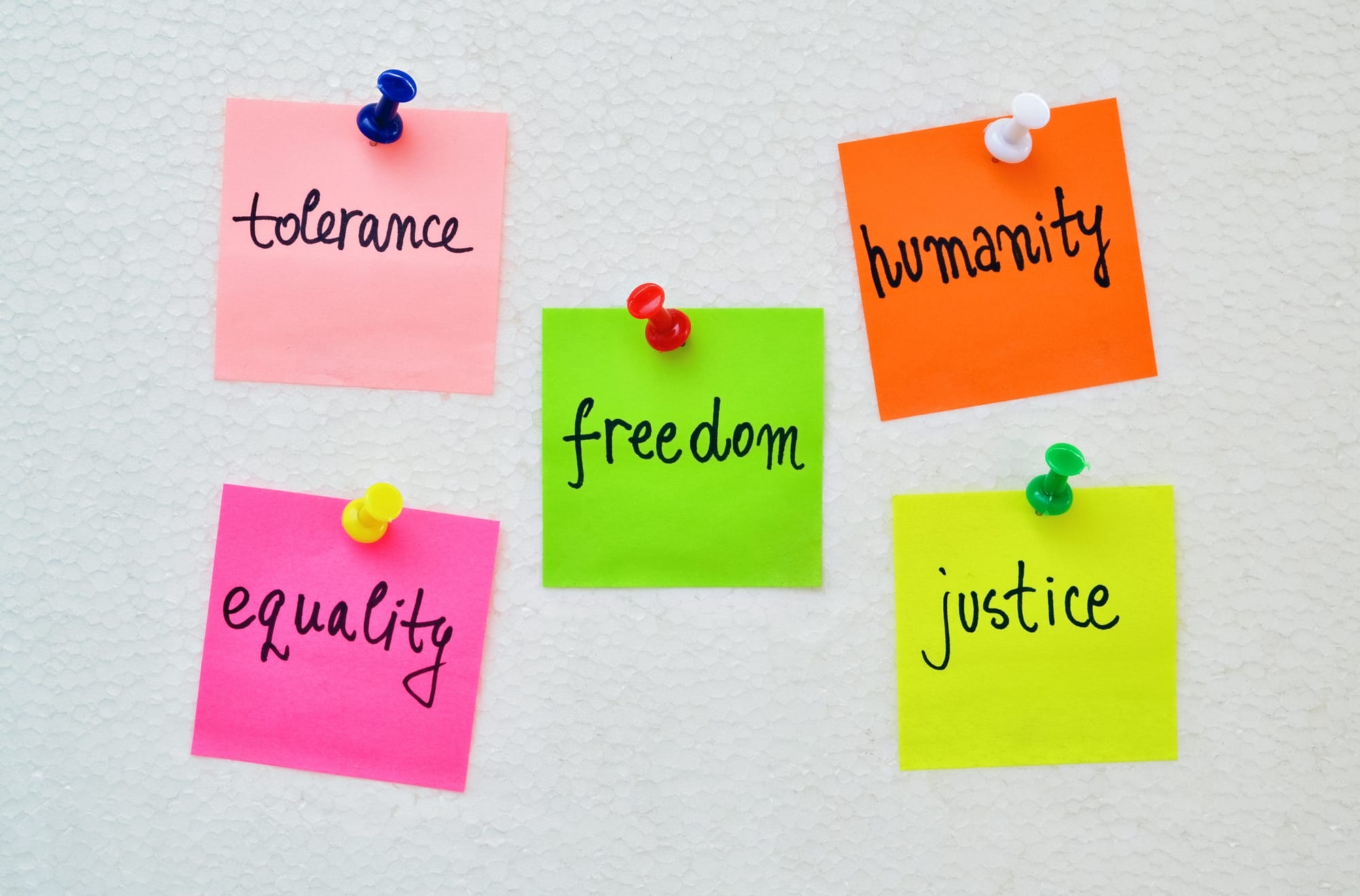
Big news: FrameLab just hit a major milestone — 10,000 total subscribers! Thank you so much for reading. If you can afford it, please consider becoming one of our paid subscribers. Because your support makes a big difference. — George and Gil
Part 3 in the Moral Warfare 101 series:
Ninety-eight percent. That’s an estimate of how much of human thought is unconscious.
Most of your ideas, thoughts and opinions exist in your brain without you having any awareness of them. They just seem to automatically be there. From “The Political Mind: A Cognitive Scientists Guide to Your Brain and Its Politics”:
The science of mind has lit up the vast landscape of unconscious thought — the 98 percent of thinking your brain does that you’re not aware of. Most of it matters for politics. The mind we cannot see plays an enormous role in how our country is governed. Yet most unconscious thought does not just automatically or magically appear in your brain. It is implanted and shaped by the world around you. Framing plays an important role in shaping, and maintaining, your unconscious beliefs.
These unconscious beliefs help determine our deeply-held moral, social and political beliefs.
Powerful metaphors and frames, often repeated by politicians and the media, sink into our unconscious and create a concept of "common sense” — even when the ideas behind them are the opposite of sensible.
We use these unconscious ideas to navigate social and political issues. These unconscious frames are not neutral. They are carefully constructed to evoke certain associations and emotions.The importance of these unconscious frames in politics cannot be overstated.
Politicians and their strategists craft messages to resonate on a deeper, often emotional level. They operate on the level of our values — both conscious and unconscious.
The way an issue is framed can result in a significant difference in public perception.
Take, for example, the framing of “tax relief.” This implies that taxes are an affliction, and it subtly endorses the notion that lower taxes are better. This kind of framing operates below the level of rational argument, appealing instead to deep-seated perceptions and emotions. For years, taxes have been framed as a source of pain rather than a key source of the public good.
Crime is another issue where we tend to be deeply affected by our unconscious beliefs. Many people instinctively think it is “common sense” to be tough on crime and impose draconian penalties. But the data says otherwise.
Crime tends to be very high in states with “lock em’ up” laws — a dynamic that is rarely questioned. Decades of research shows that investing in education, creating economic opportunity and addressing other social factors has a much bigger impact on crime. Yet Democrats often copy Republicans in prescribing “tough” measures as the answer.
Why? Because Americans have been conditioned to unconsciously believe “tough” is the solution to crime.
Think about it: Nearly every movie or TV show about crime makes it seem as if tough measures work. The protagonist — whether a police officer with a gun or a hero with a cape — must roughly (often violently) crack down on criminals in order to teach them a lesson. Often, this cop or superhero must break the law in order to give the criminals what they deserve. It’s a story we’ve seen repeated over and over again for most of our lives.
As a result, most of us have unconscious beliefs shaped by this conservative moral worldview.
Understanding of the unconscious mind’s role is crucial because it steers the strategies that political campaigns employ. Knowing that most thought is unconscious, campaigns focus on symbolic language, repetition, and emotional appeal. They do not merely present policy positions. They work to shape the very cognitive frames through which those policies are understood.
Once certain frames become established in the unconscious, they can be incredibly resilient. This is why changing someone's political opinion can be nearly impossible. Their cognitive frames need to be shifted, not just their conscious thoughts. That is very hard to do.
Campaigns also make use of "dog whistles" — coded language designed to appeal to a particular segment's unconscious biases or beliefs. These messages are often crafted to be overlooked by those not attuned to the particular frame. But the intended audience hears them loud and clear.
Recognizing the power of the unconscious is crucial. By being aware that much of our political reasoning happens out of sight, we can strive to become more conscious of the influences shaping our beliefs and attitudes. Voters can examine the frames presented to them, questioning the underlying assumptions and seeking to understand the broader implications.
In this way, the science of the unconscious mind is not just a tool for political operatives; it is also a call to intellectual self-defense for voters. We must work to bring unconscious beliefs to the surface so that we can engage in more rational and reflective political discourse. We must become better equipped to understand not just what we believe, but why we believe it.
Examining the undercurrents of our own brains is more than an intellectual exercise. It’s a civic duty. By acknowledging the full spectrum of our cognition, both the conscious and the unconscious, we can become a truly informed and more democratic society.
This short essay is part of FrameLab’s Moral Warfare 101 series. Further reading:
Moral Warfare 101
FrameLab • Dec 16, 2023

We live in an era of moral warfare. This moral warfare — a struggle between different systems of morality — will decide whether the United States remains a democracy or becomes an autocracy in the coming years. This moral warfare is being waged in multiple ways, but mainly through the flow of information. Moral warfare is conducted through information war…
Read full story →
Moral Warfare 101: Frames and Your Brain
FrameLab • Feb 5, 2024

In the first installment of Moral Warfare 101, we discussed why politics is a struggle between different systems of morality. In this second installment, we introduce the very important concept of framing. *** To understand moral warfare, it helps to understand frames.
Read full story →


